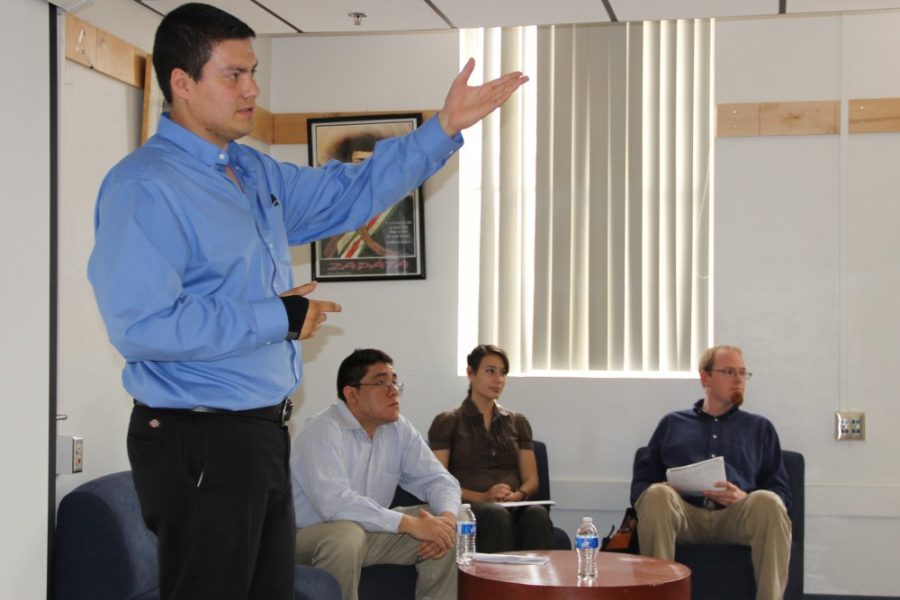A panel on immigration urged listeners Wednesday to consider the role of U.S. foreign policy and humanitarianism in border security issues.
The Chicano/Hispano Student Affairs hosted three guest speakers as part of a series of events this week in honor of labor and civil rights activist Cesar Chavez.
Colin Deeds, assistant director for the Center of Latin American Studies, started the discussion by outlining the politics involved on both sides of the border.
“You routinely hear about the cost of migration from the U.S. perspective… But people rarely think about the cost for Mexico,” he said. “There’s a human cost as well.”
Not only does Mexico lose labor and revenue, but also 250 to 400 people die every year attempting to cross into Arizona and countless families are broken up, Deeds added.
Magda Mankel, anthropology senior, focused on the human experience of illegal immigrants, emphasizing that they expose themselves to danger while crossing into the U.S. in order to work and survive.
“We get caught up in politics, and forget the human aspect,” she said. “In the U.S. it’s about money. For them, it’s survival.”
The discussion also focused on the economic imbalances that persist along the border. The speakers noted that, along with the great disparity between the gross domestic products of the two countries, the increasing imbalance between the rich and the poor in Mexico serves to worsen its economic difficulties.
Adrian Mendoza, a Center for Latin American Studies graduate student, said agreements, like the North American Free Trade Agreement, have contributed to this gap.
NAFTA, an agreement which removed “most barriers to trade and investment among the United States, Canada, and Mexico,” according to the U.S. Department of Agriculture website, helped the wealthy continue to prosper while undermining workers’ rights in Mexico, Mendoza said.
The series will continue today with a visit by U.S. Rep. Raul Grijalva in room 205 of the Cesar Chavez building from 3 to 5 p.m. Grijalva will be speaking about the importance of Chavez’s legacy.









